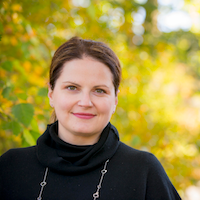As in parts 1, 2, 3, and 4, we’re having a roundtable discussion of Joseph T. Spadafino’s “Americans’ Unwillingness to Accept Evolution En Masse Is a Failure of Science Education,” posted at (although later withdrawn from) the Huffington Post. Joining me are Ian Binns (elementary science educator and researcher), Amanda Glaze (scientist/science educator and NCSE guest blogger), Chris Lynn (associate professor of anthropology and director of the evolutionary studies minor at the University of Alabama), Caitlin Schrein (evolutionary anthropologist, science writer, and former teacher), and Adam Shapiro (author and historian of science). As promised, we’re going to wrap the discussion up with some concluding thoughts.
Adam Shapiro: I think the discussion about what it means to believe or accept is important, but I had more trouble with the use of “unwillingness” (and “reluctance” in the piece.) Those terms suppose a certain level of power and information on the part of people who make conscious choices to affirm or deny. They presume that there are no informational barriers or social pressures involved, and that there aren’t understandable reasons people might have for not accepting/believing in evolution. There are understandable historical reasons for some people to be wary of state- imposed science education, and you’re not going to rebuild trust when you start with the privileged position of assuming that people are stubbornly “unwilling.”
Caitlin Schrein: I agree with Adam. To reiterate my earlier point, evolution “acceptance” is a complicated issue and correlated with a number of factors. In my research I identified seven categories of evolution acceptance, and I’m sure there could be more than that! This is not a matter of yes/no. And reported acceptance certainly should not be used to determine whether a teacher is qualified to teach. I have a similar frustration as Adam regarding the use of “unwilling,” but when discussing whether or not teachers teach about evolution. Readers may or may not be surprised that as many as 43% of public high school biology teachers in one survey (n = 522) “avoid or only briefly mention evolution in their classroom,” (Rutledge and Mitchell 2002), but that doesn’t mean that they are unwilling.
Research shows that the reasons for teachers’ not teaching evolutionary biology vary and are not simply a result of the teachers’ religious beliefs, acceptance of evolution, or training, but also include external pressure from school officials and/or parents, unfamiliarity with laws about promoting religion in schools, and lack of time (Moore 2004; Moore and Kraemer 2005; Berkman and Plutzer 2010). Interestingly, in response to the question, “Do you accept evolutionary theory to be a scientifically valid explanation of the state of living organisms of the present and past?” 33% of teachers in the survey just mentioned fell into the categories Non-acceptance or Undecided and 67% of teachers fell into the category Acceptance (Rutledge and Mitchell 2002). What these data show is there are some teachers who, despite accepting evolutionary theory, do not teach about it. That is certainly an important issue to address, as well.
Stephanie Keep: In sum: It’s complicated!!! What do you guys make of the fact that the author appears to have pulled the piece? Is it because of all of our twittering, do you think? Are we scary? All we wanted to do was to help him more fully understand the issues at play.
@EvoPhD @Paleophile @cult_cognition @icbinns @Dr_vetgirl Are we scary? He could have just emailed us and edited to add our thoughts.
— Stephanie Keep (@keeps3) April 19, 2016
Chris Lynn: I’m glad it’s down so people can’t read it and be confused/misled/angered by it.
Ian Binns: This did bother me. At first I laughed, but then I really wondered why and wanted to reach out to the author. I would much rather educate people than shut them down.
Amanda Glaze: This surprised me because the intention of sharing our thoughts about the article was not to silence the author but rather to encourage more thinking about the statements and implications. What we do in science is critique one another in our work in an effort for greater understanding and new perspectives. Removing the piece is the exact opposite of what we might have hoped for. In agreement with the rest of the group, I will give the author and the publisher the benefit of the doubt and hope it was pulled to be reconsidered and revisited.
CS: I hope that the goal of taking the piece down was to rewrite and restructure it so that the author has an opportunity to really clarify his intention. He was trying to make arguments based on published research/survey data, but hadn’t thoroughly done his homework. I think it would be nice if he would write something that emphasizes the nuances of this subject matter.
SK: And that brings us back to the beginning, right? This is highly nuanced stuff. The issue with the piece was that it was not nuanced at all. When it comes to the intersection of society, education, and evolution, it’s just never that simple.
Are you a teacher and want to tell us about an amazing free resource? Do you have an idea for a Misconception Monday or other type of post? Have a fossil to share? See some good or bad examples of science communication lately? Drop me an email or shoot me a Tweet @keeps3.

